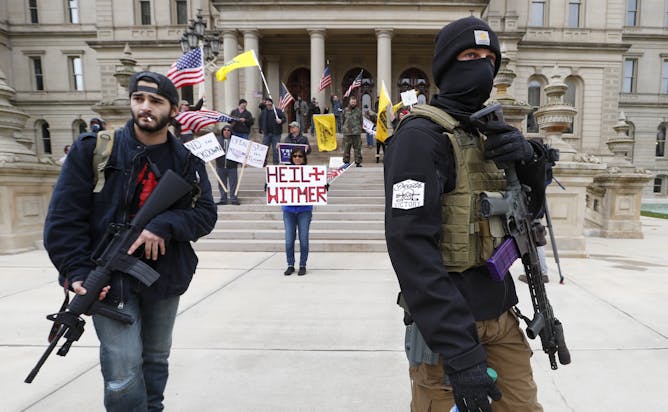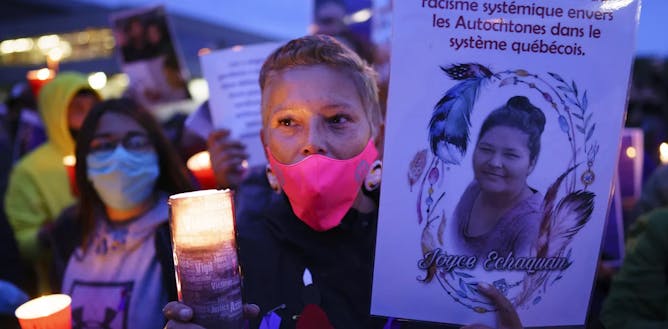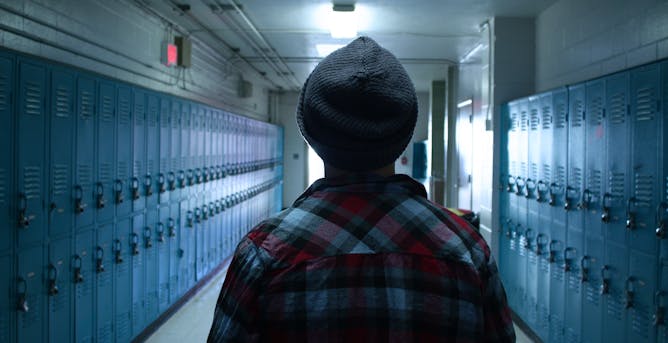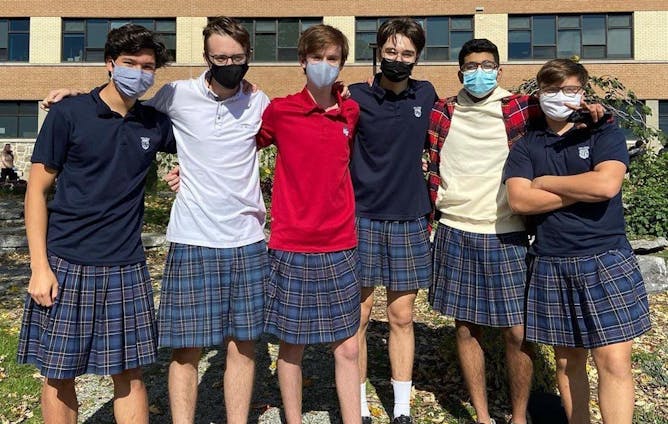|
Business schools around the world are increasingly on the hot seat when it comes to calls to decolonize. A prominent business school in the United Kingdom, for example, recently changed its name to avoid being associated with the slave trader it was originally named after. What about here in Canada?
In today’s The Conversation Canada, Dara Kelly, associate professor in Indigenous Business at Simon Fraser University and her co-author, Jordyn Hrenyk, call for business schools to re-evaluate the symbols they’re promoting as students at Canadian business schools call out racism on social media channels.
“Who are we elevating? Which ideologies? Specifically, we ask that business schools do the work to not just Indigenize (add to), but decolonize (unlearn). That means having a serious look at the legacies we uphold.”
Also in today’s edition:
All the best.
|
Lee-Anne Goodman
Politics, Business + Economics Editor
|

|
|

As statues topple, business schools must begin seriously decolonizing.
(Piqsels)
Dara Kelly, Simon Fraser University; Jordyn Hrenyk, Simon Fraser University
Contemplating the future of the business school means we must decide what kind of society we want our students to create and what reforms are needed to enable them to do so.
|

In this April 2020 photo, protesters carry rifles near the steps of the Michigan State Capitol building in Lansing, Mich. A plot to kidnap Michigan’s governor has put a focus on the security of governors in the United States.
(AP Photo/Paul Sancya)
Sean Spence, University of Portsmouth
Is right-wing violent extremism the new fifth wave of modern terrorism? If so, there's no doubt the impacts of COVID-19 will only help accelerate the radicalization of its adherents.
|

Graphic narratives can be a great tool to teach media literacy.
(Shutterstock)
Erin Steuter, Mount Allison University
Delivering media literacy in a comics format can help readers develop the skills to identify fake news and counter its effects.
|

New DNA analysis revealed that Calvin Hoover killed Christine Jessop in 1984. Toronto Police Chief James Ramer sits next to a screen displaying photos of Calvin Hoover during a news conference on Oct. 15, 2020.
THE CANADIAN PRESS/Chris Young
Julia Creet, York University, Canada
Christine Jessop was murdered in 1984 and, 36 years later, DNA evidence finally identified her killer. But the police investigation's use of genetic genealogical databases raised questions about privacy.
|

Demonstrators hold a vigil marking the death of Joyce Echaquan, who recorded insults hurled at her by staff at the Joliette, QC, hospital while she was there for treatment.
The Canadian Press/Paul Chiasson
Marie-Claude Tremblay, Université Laval
Joyce’s Principle seeks to shift the way health services are provided to Indigenous communities and ensure they are free of discrimination.
|
La Conversation Canada
|

shutterstock.
Sivane Hirsch, Université du Québec à Trois-Rivières (UQTR); Audrey Groleau, Université du Québec à Trois-Rivières (UQTR)
Il est très difficile d’aborder les idées complotistes en classe et la confrontation n’est pas la solution. La stratégie recommandée est plutôt d’introduire un doute dans l’esprit des jeunes.
|

Vendredi 9 octobre, une centaine de garçons du Collège Nouvelles Frontières à Gatineau, au Québec, portaient des jupes à l’école pour protester contre le double standard du code vestimentaire sexiste de leur école.
_zachpaulin_ / Instagram
Francis Dupuis-Déri, Université du Québec à Montréal (UQAM)
L’école est depuis longtemps un lieu de contestation. Les révoltes vestimentaires survenues cet automne au Québec et en France relèvent d’une longue tradition de désobéissance civile.
|
Culture + Society
|
-
Steven P. Millies, Catholic Theological Union
The pontiff hasn't changed church teaching on marriage in indicating support for same-sex civil unions. Rather, he is reminding Catholics they should be concerned about justice for all.
|
|
Arts
|
-
Alison Baker, University of East London
Here are some books that will make reading time more enjoyable for children and the adults reading to or with them.
|
|
Science + Technology
|
-
Pascal Vrticka, University of Essex; Philip J. Cozzolino, University of Essex
Recent findings from social neuroscience show us how we can make virtual interactions almost as beneficial as real world ones.
|
|
| |
| |
| |
| |
| |
| |
|
|